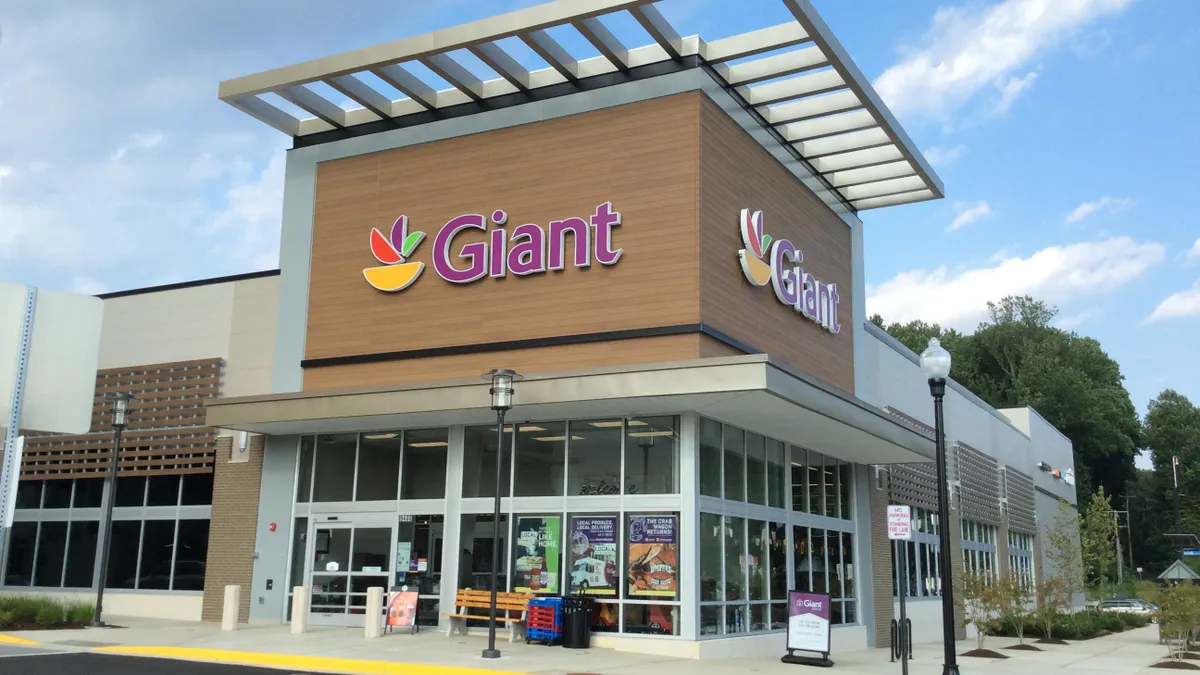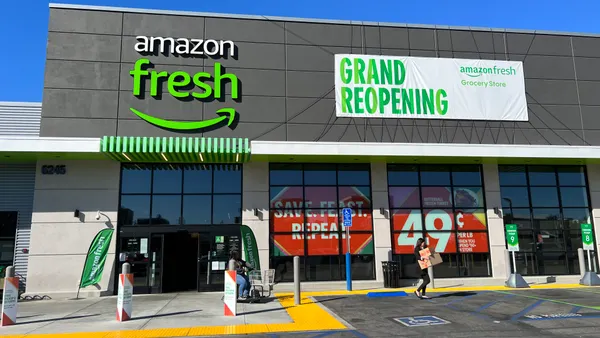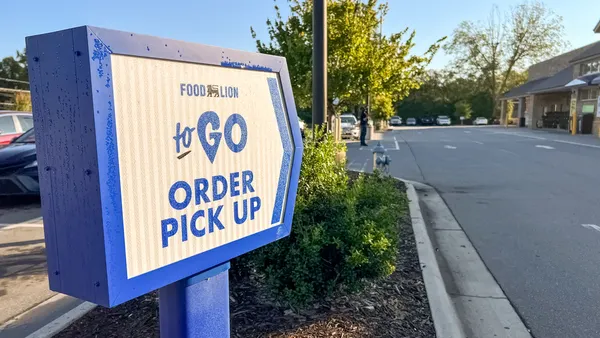Dive Brief:
- Starting in January, Giant Food will have updated labels on its shelves, website and mobile app to better promote products from women- and minority-owned businesses, the grocery chain announced in a press release on Monday.
- The labels, which will roll out at all 164 Giant Food stores across the greater Washington, D.C., region, will identify products from "Women, Black, Asian-Indian, Hispanic, LGBT, Asian-Pacific, or Veteran owned" businesses, according to the announcement. The grocer said 218 businesses in its vendor network qualify as minority-owned.
- Giant Food also plans to highlight its supplier diversity with storytelling initiatives and product spotlights on a new supplier page of its e-commerce site.
Dive Insight:
Giant Food’s label initiative feeds into its broader efforts to demonstrate to shoppers its commitment to diversity and inclusion by explicitly highlighting the range of backgrounds of its vendors.
In September, Giant Food pledged $500,000 to organizations in the greater Washington, D.C. area to support racial equality, channeling $150,000 to programs at local historically Black colleges and universities and $350,000 to its nonprofit partners, which provide educational, mentorship and nutritional programs in Black communities.
As a result of the novel coronavirus pandemic and the protests this summer against racial injustice, more shoppers are paying attention to, and seeking out, businesses that are minority-owned. Schnucks has launched an initiative to boost its assortment of local products from diverse suppliers, while Giant Food's parent company, Ahold Delhaize, has partnered with nonprofit organizations to help locate and certify diverse manufacturers.
At the corporate level, Kroger recently laid out a ten-point plan to accelerate diversity, equity and inclusion in its stores, corporate offices and beyond.
Grocers like The Giant Company and The Fresh Market are also turning to shelf tags to highlight information about their suppliers.
Overall, partnering with and highlighting brands that enjoy existing goodwill with shoppers has been a popular tactic for grocers and delivery services this year, especially as numerous small food businesses have not fared as well during the pandemic as larger grocery chains.













